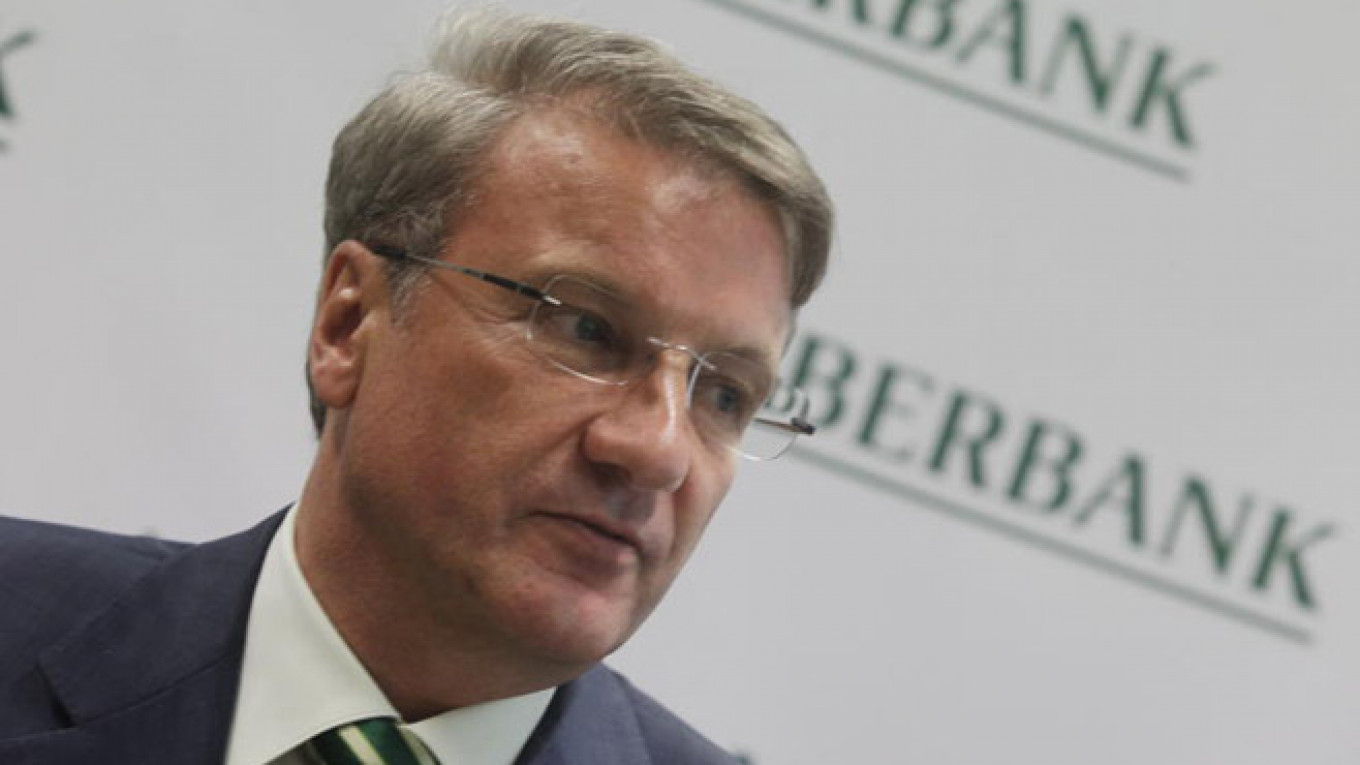The Central Bank has delayed the decision to select the company that will create Russia's new national payment system by about two weeks, the regulator's head, Elvira Nabiullina, said Tuesday at a banking conference in St. Petersburg.
President Vladimir Putin signed a law on the creation of a national payment system in May after Visa and MasterCard stopped servicing two Russian banks that had been blacklisted by the U.S. in response to the annexation of Crimea.
A working group has been tasked with choosing the best option from two potential payment systems — the Universal Electronic Card, or UEC, developed by leading Russian lender Sberbank, or the Golden Crown money transfer system that has more than 40,000 branches in Russia, the Commonwealth of Independent States and other countries.
The decision was expected on July 1, but the working group now has until mid-July to reach a decision. Nabiullina said that a shortlist of candidates already exists, but declined to name any of them, PRIME reported.
Sberbank head German Gref said Tuesday that he wants his organization to develop the UEC system even if it is overlooked as the platform for the national payment system, Gazeta.ru reported.
A new type of electronic chip has already been developed for UEC, but it will take about 18 months to reach full scale production, Kommersant reported in June.
Explaining Sberbank's interest in the project, Gref said that the bank's main competitors in the coming years were likely to be online payment systems such as Yandex.Money, Qiwi and WebMoney, which are providing stiff competition for traditional banks.
See also:
Duma Committee Plans Crackdown on Foreign Online Payment Systems
A Message from The Moscow Times:
Dear readers,
We are facing unprecedented challenges. Russia's Prosecutor General's Office has designated The Moscow Times as an "undesirable" organization, criminalizing our work and putting our staff at risk of prosecution. This follows our earlier unjust labeling as a "foreign agent."
These actions are direct attempts to silence independent journalism in Russia. The authorities claim our work "discredits the decisions of the Russian leadership." We see things differently: we strive to provide accurate, unbiased reporting on Russia.
We, the journalists of The Moscow Times, refuse to be silenced. But to continue our work, we need your help.
Your support, no matter how small, makes a world of difference. If you can, please support us monthly starting from just $2. It's quick to set up, and every contribution makes a significant impact.
By supporting The Moscow Times, you're defending open, independent journalism in the face of repression. Thank you for standing with us.
Remind me later.






